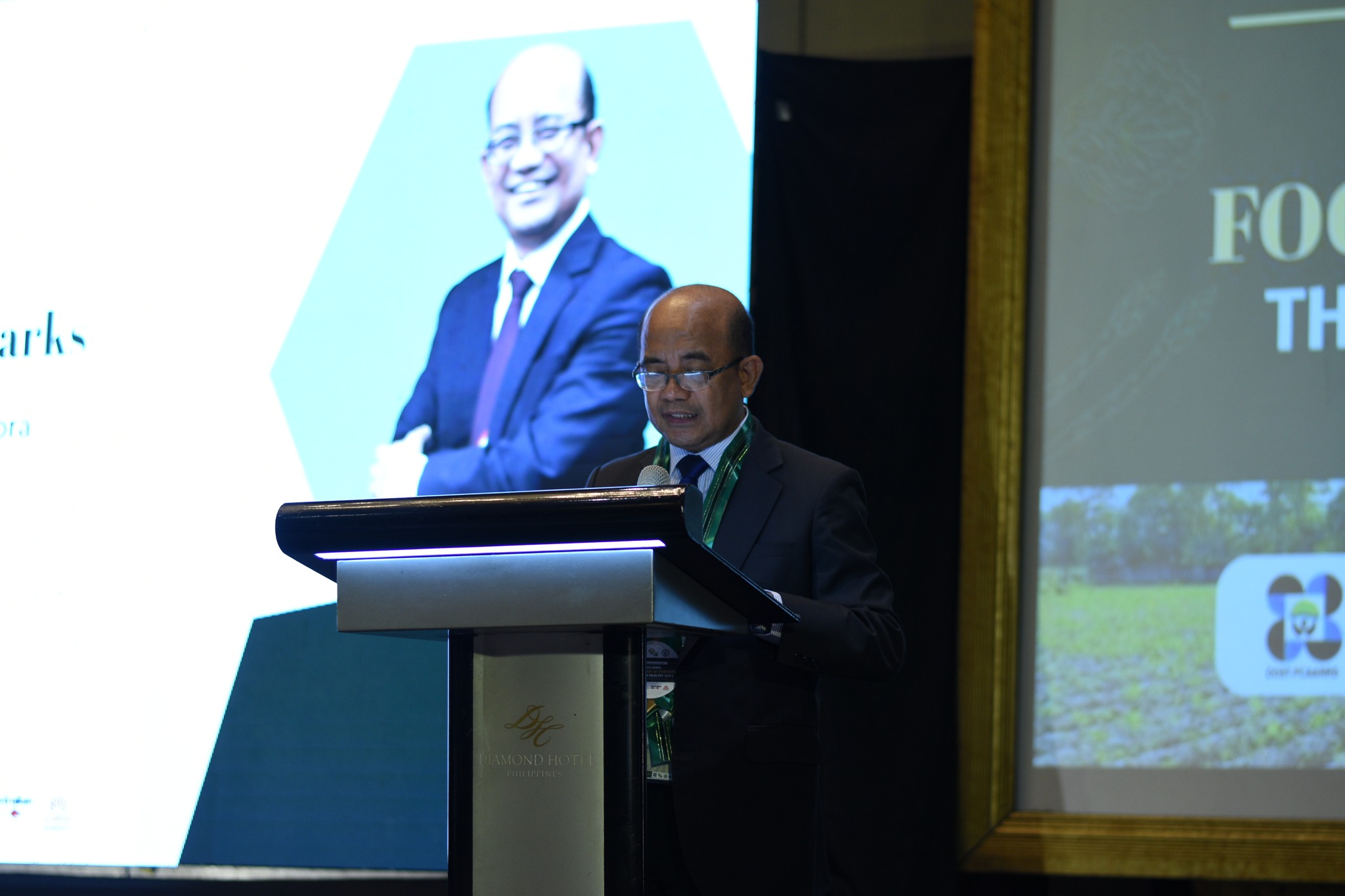The Philippine Council for Agriculture, Aquatic and Natural Resources Research and Development of the Department of Science and Technology (DOST-PCAARRD) joined forces with leading agricultural organizations and policy institutions from the Philippines and Australia to address the looming threat of soil degradation against food security at the 1st National Soil Health Summit last June 21-22, 2023 in Manila.
“This Summit will serve as a platform for sharing of technologies and practical experiences of different sectors on soil health and related activities, including highlighting the success factors that will contribute to the revitalization of Philippine agriculture,” said Dr. Reynaldo V. Ebora, Executive Director of DOST-PCAARRD
Dr. Ebora highlighted the importance of such activities, especially in the country's collective efforts to improve soil health. It also provided a venue for strengthening international linkages between governments and research institutions.
“The future of our agriculture partly rests on our shoulders. Let us make science, technology, and innovation work for the people and our nation,” said Dr. Ebora.
The 1st National Soil Health Summit, with a theme “Securing Food and Nutrition through Healthy Soil,” provided a local and global perspective on the importance of soil health in sustainable agriculture. It also created awareness among farmers, stakeholders, academe, LGUs, and policymakers regarding the problems of soils in the Philippines and their effect on the agriculture industry. Likewise, the summit provided various soil management strategies for improving soil health to boost agricultural productivity and farmers’ income. It highlighted science, technology, and innovations as helpful basis for formulating action plans and future policies in the country.
Institutional Support for the soil health agenda
The presence of President Ferdinand Marcos Jr. showed great support from the executive branch for scientific interventions and efforts toward providing sustainable solutions for Filipino farmers.
In his speech, the president recognized that while the country is blessed with agricultural lands, the issue of pollution, soil degradation, and improper use of fertilizers threaten land fertility and the future productivity of the industry. “Needless to say, our soil is under threat. And, to continue to neglect this vital agricultural component will lead to an even worse crisis in the future,” said President Marcos.
However, the President is hopeful that intensive efforts, interventions, and stronger partnerships will provide substantial support to address these issues. He expressed that with the soil health summit, dialogues among policymakers, research institutions, and agricultural stakeholders will spark informed decisions and innovations for the industry.
Also in attendance is the Chairperson of the Senate Committee on Food and Agriculture, Senator Cynthia Villar.
“Kasama po ninyo ako sa pag-abot sa pangarap ng isang masaganang agrikultura, maunlad na ekonomiya, at food sufficient na Pilipinas,” said Senator Villar.
In her message of support, Senator Villar noted that the country must prioritize soil health and adopt sustainable practices that preserve the vitality of agricultural lands through the use of organic farming and responsible use of fertilizers. As such, the senator shared the committee's plan for a proposed budget for regional soil laboratories that shall provide accurate data on soil health in their lands.
Meanwhile, Representative Eddiebong Plaza of the 2nd District of Agusan Del Sur also expressed his support for the summit. “I am hopeful that the 1st National Soil Health Summit will translate to the establishment and implementation of a Philippine Soil Health Strategy,” said Honorable Plaza. He also hopes that the summit will provide an avenue for his fellow policymakers to take a bigger role in campaigning for the country’s soil health.
A collaboration with the land down under
The 1st National Soil Health Summit was also made possible with the partnership between the Philippine and Australian Governments; specifically, the Australian Centre for International Agricultural Research (ACIAR), Australian Aid, and Griffith University.
According to Mr. James Yeomans, Acting Deputy Head of Mission of the Australian Embassy in the Philippines, agricultural research remains to be an important area of development cooperation between the two countries spanning 40 years. He added that since 1983, Australia has been a significant investor in research partnerships with the Department of Science and Technology and the Department of Agriculture to improve agricultural systems for human, environmental, and economic resilience. He further expressed that collaborations between Australian and Filipino Scientists not only helped the pursuit of scientific knowledge but also impacted the lives of farmers and consumers in both countries.

